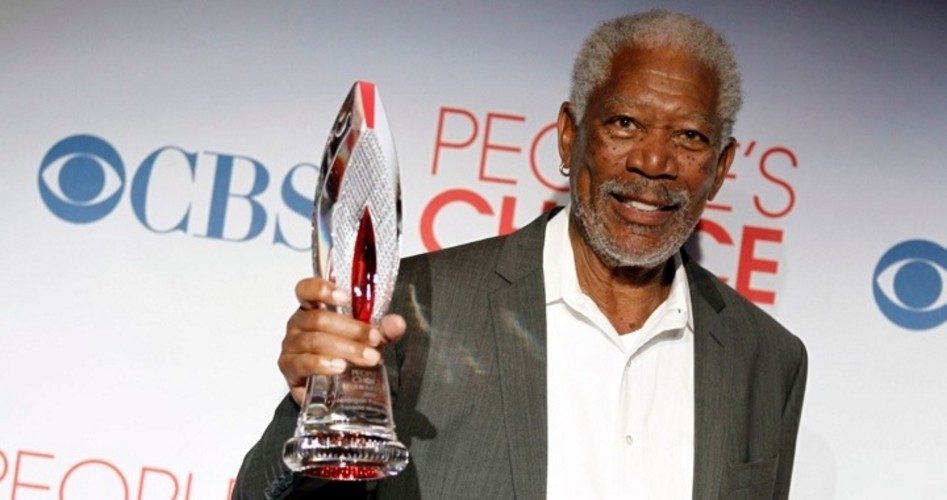
On July 6, famed film actor Morgan Freeman spoke with NPR’s Michel Martin during the latter’s NPR show, Tell Me More. The Hollywood giant’s comments regarding President Obama have generated considerable controversy. Contrary to the conventional wisdom, Obama, Freeman insisted, is not America’s first black president. “America’s first black president hasn’t arisen yet,” Freeman declared, for Obama is the country’s “first mixed-race president.”
Freeman’s judgment is based on the common knowledge that it is only Obama’s father — the Kenyan, Barack Hussein Obama, Sr. — who was black. His mother, though, was white. According to Freeman, a Democrat and long-time supporter of the president, it is Obama’s opponents who conveniently choose to “forget that Barack had a mama” who “was white — very white American, Kansas, middle of America.”
It should come as no surprise that Freeman’s stance on this matter has got people talking. For one, it is only now, nearly four years after people from around the world and all walks of life celebrated the election of its “first black president,” that Freeman feels the need to, in effect, correct popular perceptions by accentuating Obama’s bi-racial ancestry.
Second, Freeman himself has contended in the past that opposition to Obama stems from his opponents’ “racism.” As recently as last September, while speaking to CNN’s Piers Morgan, Freeman claimed that Obama’s election has actually fueled the flames of racial bigotry. He specifically set his sights on the Tea Party. “Their stated policy, publicly stated, is: ‘Screw the country. We’re going to do whatever we can to get this black man out of here.’”
Freeman’s apparent flip flop on Obama’s racial identity calls to mind a joke that the black comedian Wanda Sykes made shortly after Obama’s victory over rival John McCain. Speaking at the 2009 White House Correspondents’ Association dinner, Sykes joked that she was “proud” that she could describe Obama as “the first black president.” Yet her pride, she promised, will last only so far as Obama doesn’t “screw up.” If that happens, though, then she would ask: “What’s up with the half-white guy?”
Thus far, Freeman hasn’t expressed his willingness to join the growing ranks of one-time Obama voters who have registered their disappointment with the president. It is, supposedly, nothing more or less than Freeman’s desire to combat what he takes to be “the racism” of Obama’s opponents that leads him to eschew the ascription of the label “black” to his 2012 presidential candidate of choice.
The confusion surrounding Obama’s racial identity is nothing new. In fact, the case can be made that it begins with the president himself. After all, as its subtitle makes amply clear, his memoir, Dreams From My Father, is a “story” of race and inheritance.
The authorship of Dreams has been contested (some, like writer and publisher Jack Cashill, have argued at length that convicted domestic terrorist-turned-English professor Bill Ayers is the real author). And many of its details have been decisively debunked. Still, that Dreams is a narrative telling of Obama’s quest for racial wholeness proves that throughout his life, he has been conflicted over his mixed-racial heritage.
In the end, however, it was Obama, and he alone, who chose to identify himself as black. Not only does he make this clear in Dreams; in the 2010 U.S. census, he identified himself as “Black, African Am., or Negro” — even though he had the option of expanding upon his identity. According to a Huffington Post article from December 14, 2008, just weeks after Obama’s election, the president elect bluntly stated: “I identify as African-American — that’s how I am treated and that’s how I’m viewed. I’m proud of it.”
While it is not difficult to see why Obama has been viewed as African-American, it is not clear what he could have meant in saying that he was “treated” as such. Obama was raised by whites and around whites in Hawaii. The family that provided and sacrificed for him was white. Most of his friends were white. He never attended any but the most prestigious of private educational institutions. Even his own memoir is in exceedingly short supply of the episodes of racial injustice that Obama allegedly experienced.
Morgan Freeman may now charge the president’s rivals for neglecting Obama’s white ancestry. But prior to his inauguration, Freeman’s fellow partisans cautioned in no uncertain terms against any and all attempts to emphasize his whiteness.
A 2008 AP article, “Many Insisting That Obama is Not Black,” states: “Attempts to whiten Obama leave a bitter taste for many African-Americans who feel that at their moment of triumph, the rules are being changed to steal what once was deemed worthless — blackness itself.” The article quotes Dartmouth professor of African and African-American studies Marty Favor. Favor asserts that “for some people, it’s honestly confusion” that accounts for this move on the part of whites to deny Obama his blackness. “For others,” however, “it’s a ploy to sort of reclaim the presidency for whiteness, as though Obama’s blackness is somehow mitigated by being biracial.”
Interestingly, some have argued that Obama and his supporters have identified him as “black” precisely because of the benefits that they knew they could reap from doing such. For example, from 1991 to as recently as April of 2007, Obama’s own literary agent’s official bio of him credited him with being “the first African-American president of the Harvard Law Review” who “was born in Kenya.” But when confronted with the fact that Obama was “born in Kenya,” Miriam Goderich, the writer, explained it away as “nothing more than a fact-checking error” on her part.
National Review columnist Mark Steyn, though, had a different theory. Obama, he believes, really was born in Hawaii. But he spent most of his life, before it became politically inexpedient to continue doing so, pretending to have been born in Kenya. Steyn explains:
After all, if your first book is an exploration of racial identity and has the working title, Journeys in Black and White, being born in Hawaii doesn’t really help. It’s entirely irrelevant to the twin pillars of contemporary black grievance — American slavery and European imperialism. To 99.99 percent of people, Hawaii is a luxury vacation destination and nothing else.
Odds are, ideological and political conflicts over Obama’s racial identity will be with us for some time to come.
Photo of Morgan Freeman at 2012 People’s Choice Awards: AP Images



